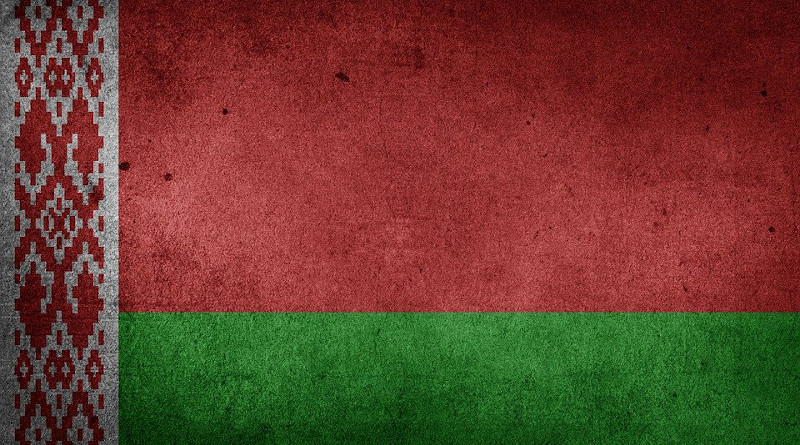Belarus Crisis And Threats And Opportunities To China – OpEd
Belarusian President Alyaksandr Lukashenka’s decision to force down an airliner and arrested journalist Roman Protasevich sparked reactions in Brussel, Washington and Moscow. After this event, EU leaders decided to impose new sanctions on Belarus and also ban aviation over the country’s airspace.
The new crisis in Belarus not only threatens the interest of the EU, the U.S, and Russia but also menaces the interest of China. In this article, we analyze how Belarusian hijacking affects China’s bilateral relations with Belarus and its policy on Eastern Europe in the context of the political and economic realm.
In the 2020 presidential election in Belarus, despite the protest against the election result, the Chinese President Xi Jinping was the first foreign leader to congratulate Alexander Lukashenko as a winner of the election. During the election, Chinese media mostly criticized Western countrys’ policies over Belarus and supported the president. Concerning the recent crisis in Belarus, there were no official reactions from China to a situation in Belarus. But government-affiliated Global Times, like during the presidential dilection, criticized Western countries’ reactions and claimed that the last events need more investigation for clarifying the decision of the government of Belarus.
Protests against the government and recent trouble affect China’s both security and economic relations in terms of bilateral level and regional level. Both situation creates new opportunities and problems to China in Eastern Europe. In terms of opportunities, firstly, the isolation of Belarus may create new opportunities for China for expanding its economic influence over the country and getting the strategic assets of a country. Secondly, increasing leverage over the state may strengthen China’s positions vis-à-vis the EU and U.S in the region. Finally, Western countries’ reactions and pressure may promote both China-Russia cooperation in the context of the crisis of the Belarus and Eastern Europe region. Besides, it also may promote two countries’ bilateral relations in the context of security and economic issues.
In terms of threats, firstly, increasing tension over Belarus destabilizes the country and this condition affects trade negatively and threatens China’s investment. Despite decreasing trade volume between China and Belarus in 2020, the recent crisis may cause more deterioration of trade relations. Moreover, in terms of investment, tension over Belarus between Russia and the West and internal polarization in Belarus threaten China’s investment in the country and promote reluctance of the Chinese companies to invest country. Finally, increasing tension over Belarus and possible new crisis not only impend China’s economic interest but also mean that China lost its ideological ally. Because Belarus also in favor of China’s style of statecraft which state plays an important role in all aspects of people’s life and economy.
In terms of regional level, firstly, in the context of China’s Belt and Road Initiative (BRI), Belarus plays a key role in the Northern corridor which plays an important role in exporting Chinese goods to the EU and also for building transport corridor to Central and Western European countries. Furthermore, this route one of the shortest route of the BRI’s corridor which goes from China through Kazakhstan, Russia to Belarus which average transit time is consist of 5 days. In terms of transport cost per TEU this route cheaper than others.
First two months of 2021, more than 2000 freight trains ran from China to Europe which was double the rate in 2020. Increasing isolation of Belarus since 2020 and ban aviation over the country’s airspace also may threats China’s interest in the context of BRI because firstly, isolation of Belarus may affect China-EU trade relations via railway negatively. Second, both the growing tension in the South Caucasus and the sanctions against Iran threaten the relative stability of both the Southern and the Middle Corridors. In addition, the isolation of Belarus could create problems for the Northern Corridor, which could increase China’s dependence on sea routes and directly threaten China’s security and economic interests due to tensions between China and the United States.
Second, the Belarusian tension between Western countries and Russia challenges China’s neutral position and it may force China to take side with Russia or the EU. Finally, about the recent problematic relations between Central and Eastern European Countries and China (CEECs), such as Lithuania’s quit from 17+1, insistence on a neutral position or taking sides may increase complexity and lead to more reduce the influence of China over Eastern Europe. It also may strengthen the perception of the “China Threat”. In addition to Eastern European countries, China’s position on the crisis of Belarus may cause more deterioration of the China-EU relations.
To sum up, the new crisis in Belarus create more problems and challenges than opportunities for China. Increasing tension between the EU and Russia also destabilizes the region and create a complex situation for China’s bilateral and regional interest. In this situation, China’s relatively neutral position and balanced foreign policy will face new challenges in Eastern Europe.
*Yunis Sharifli graduated with a Bachelor of Arts degree in International Relations from the Azerbaijan State Economic in 2020. At the moment, he is studying at the University of Bologna for his Master’s Degree. He was an intern at the Topchubashov Center. He is currently an intern at the Caucasian Center for International Relations and Strategic Studies (QAFSAM). His areas of expertise cover China’s foreign policy in the context of the Central Asia and South Caucasus and also the Belt and Road Initiative.

